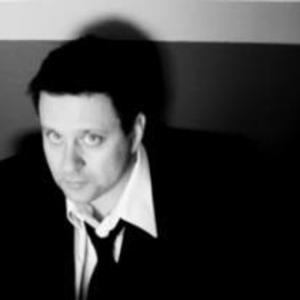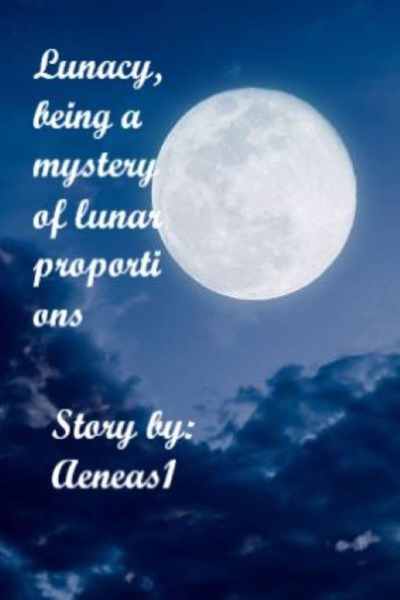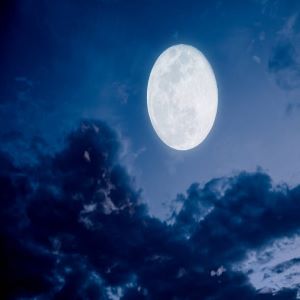Oddly enough this didn’t really make me disturbed or anything like that. I knew something was wrong with this village. I slowly snuck away from the house, leaving Elder Simonson alone with his tea, and went down the street with my mind deep in thought. Who was that woman in the painting? Where had Elder Simonson got the painting from? What was so special about that painting that he’d use it like it were some sort of religious icon? I heard something behind me. Elder Simonson was walking out of the house, looking very annoyed.
“And just where do you think you’re running off to, boy?” he snapped.
“I-I thought you wanted me to make you some tea,” I stammered. “That’s what I’ve done. What more do you even need me to do for you?”
“It’s not me you should be tending to. My colleagues also need help. You’ll find their houses down the street. Now hop to it!” he snapped, waving his cane at me. I rushed down the street towards where I could probably find the home of Elder Willoughby. Elder Willoughby was waiting outside his house. If I thought that the home of Elder Simonson was humble, Willoughby’s was even smaller – little better than your typical two-storey Georgian townhouse, like the kind you tend to get in London. Nevertheless, it had some form of grandeur, just in a different way. Willoughby asked me to proofread some documents for him.
“What’s ‘proofread’?” I asked him.
He gibbered irritably. “I don’t know. Just get on with it. Check for some errors or something.” I went into the house and went upstairs, where his study was. It was a very small room, little better than a cell, devoid of all furniture except for a desk. There were some documents on the table. The minute I sat down at the desk, I immediately realised something odd. That, of course, was the fact that this village had a council of citizens governing it. This, in itself, was certainly unusual. No village in the whole of England had a council of elders. Nor did any village in England have a chieftain or chieftainess.
When I studied the documents, I couldn’t help but notice that there were some grammatical errors in some of them. These I hastily crossed out and corrected. Otherwise there was nothing wrong with the document that I could see. There happened to be a typewriter nearby. I retrieved some paper and placed it into the typewriter, after which I happily typed out the entire contents of the document, satisfied that I had done the work that was requested.
Elder Willoughby came in later and reviewed my work. For some reason, he yelled at me as if I hadn’t done the task as he’d wanted me to do it.
“What did I get wrong?” I yelled, exasperated. “You asked me to check for problems in the spelling. I did that, didn’t I? Just as you asked.”
“It was more than that, boy,” snapped the Elder. “Your responsibility was to check for those and correct anything the writer got wrong while writing the document.”
He then slapped me across the side of the cheek. It reminded me of my father on one of his bad days, or at least, on another of the days when he was in a really good mood. He then had me turn around for a few seconds and then I felt a great big pain in my backside as his foot roughly pressed against it. I wandered out of the house later in a daze, and collapsed in the middle of the road, and it was some time before I had recovered from my present state and was ready to stand up. Thankfully nobody else needed help that day, so I just went for a walk in the forest to kill some time.
I had barely gone a few yards when, to my shock, I noticed something, glistening through the trees. I walked around the area but tripped. I got up and found, to my even greater horror, that I had in fact tripped over a human skeleton, and, to make matters worse, one of my shoes had become lodged in its carcass. Looking around this part of the forest, I noticed that many human fossils lay strewn about all over the place. It reminded me of one time, when we’d been in the local church and I’d had to hear the reverend drone on and on about the valley of the bones in Ezekiel, only this time no miracle would ever come, and no flesh would ever begin to form upon any of their bones, just as it had done in the vision. I turned and continued to run, back towards the village, away, away, away, and as I walked, the sound of the forest floor creaked under me like rustling paper as I continued my chase. I had never encountered a dead body before that point, nor did I understand fully what happens to you after you die. Encountering a human corpse was what horrified me. It hadn’t even been buried properly or anything, nor did it have a grave marker or a coffin. It’s hard for me to admit that I saw it, because to be honest, I feel rather uncomfortable just thinking about it.
On the way home that evening, after having watered Mr Harris’ flowers for about the seventeenth time during the first week of my stay in this village, I heard lights in the forest, and the beating of a drum. I went up to have a look. I didn’t really want to come too close, because I was terrified lest I should encounter more skeletons strewn about all over the place. I heard some chanting, but very faintly. Upon drawing closer, the chanting turned out to be a woman’s voice, crying in some sort of poetic language. I could hear quite clearly what she was saying:
Nourishing the corn. Keeping time,
Keeping the rhythm in their dancing
As in their living in the living seasons
The time of the seasons and the constellations
The time of milking and the time of harvest
The time of the coupling of man and woman
And that of beasts. Feet rising and falling.
There was some sort of clapping involved, but I couldn’t really make out whether or not it actually was clapping. I turned away and walked back to Clarence’s cottage, wondering for the life of me who exactly would recite stuff like that in the middle of the forest to a drum. What exactly was going on up there? Did the villagers hold poetry recitals at night? Is that why they went up into the village at night? I suppose it was. I supposed that it was why I was forbidden to set foot outside at night, aside from the usual rules about going to bed. Being a poor street kid, I’d never really had the chance to read much poetry, and I certainly didn’t recognise that sample. Clarence was absent, oddly enough, and so I went and lay myself flat on my bed, resting. However, something felt odd. The cottage was unusually quiet without Clarence inside it. I don’t know why, and I couldn’t even put my finger on it at the time, but something about his absence just didn’t feel right.
Then the unpleasant memory of the corpses came back to me, and I found myself crying myself to sleep. The nightmare that followed that evening featured them – prominently. All those half-rotted and fully-rotted dead bodies. I heard some kind of sighing, then screaming, then gagging, and then, finally, I heard the echoing sound of the ravens as they had greeted me when I first arrived in Cubbington: “Beware! Beware! Beware!” The last scene of all that closed this strange, eventful parade of horrific images was an image of the crescent moon. It hung about in the sky of my mind, but something about it just didn’t feel right. I woke up at what I feel must have been midnight in a cold sweat. I got up and looked out of the window, uncertain as to what to do. I considered going for a walk that evening, but eventually decided against it because I knew that I had to respect the Council of Elders. They had made the rule that I was not to go out during the evening, especially during phases of the moon. Yet, I had been out this evening, by complete happenstance, and I had seen what had happened in the forest, or at least heard it. What was the problem was understanding why? Why didn’t they want me to go out during the evening? The question still remained in my mind, as troubling as ever.












Comments (1)
See all